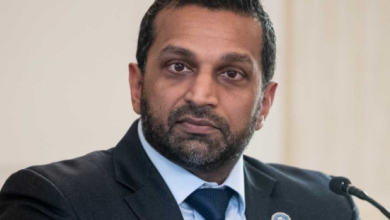FG, World Bank launch $500m irrigation, power project

The project, valued at $500 million and supported by the World Bank, aims to deliver large-scale multi-purpose infrastructure for irrigation and hydropower generation.
Speaking at the inaugural meeting in Abuja on Friday, the Minister of Water Resources and Sanitation, Prof. Joseph Utsev, who chairs the Steering Committee said the initiative aligned with the Renewed Hope Agenda of President Bola Tinubu.
According to the minister, the SPIN project builds on the success of the Transforming Irrigation Management in Nigeria (TRIMING) project, which helped rehabilitate about 32,000 hectares of irrigation schemes and empowered Water Users Associations (WUAs) across the country.
“Nigeria is committed to improving its food, water, and energy security.
“Through this project, we are targeting 500,000 hectares of irrigated agriculture, 30 Gigawatts of sustainable energy, and strengthened resilience to floods, droughts, and climate change.
“The project consists of four key components: Institutional Strengthening, Irrigation Modernisation, Dam Safety and Operational Improvements, and Effective Project Management.
“It will be implemented under two models; Model 1, which focuses on federal government-managed schemes in collaboration with interested states, and Model 2, which supports state-owned irrigation schemes”.
According to him, out of the 34 states that expressed interest in participating in the project, 27 pledged to meet the readiness criteria, and 17 states have been confirmed as qualified.
He said these states satisfied three key requirements: enacting a WUA law at the state level, allocating budgetary provisions for WUA operations and maintenance, and establishing counterpart funding.
The minister commended the SPIN Interim Team for field assessments and preparing key documents, including the Project Appraisal, Implementation Manual, and 18-month work plan.
He noted that the steering committee, composed of Ministers from relevant sectors and Commissioners from participating states, would serve as the apex policy and decision-making body for the project.
Earlier, the Minister of Agriculture and Food Security, Senator Abubakar Kyari, described the SPIN project as timely, noting that it would build on the achievements of the TRIMING initiative to further transform Nigeria’s agricultural sector.
Kyari commended the World Bank for its continued support towards sustainable development across various sectors, but emphasised the need to place greater focus on measuring concrete outcomes.
“In every programme we implement, whether within our ministries or in partnership with international stakeholders, we must ask a fundamental question: What specific results will this project deliver?
“In the case of agricultural production, what measurable outcomes are we targeting? Clarity on such goals ensures that our efforts are meaningful and result-driven.
“While our rapidly growing population is often viewed as a burden, I see it as a powerful opportunity.
“With strategic planning and the right investments, this population can become a major force for innovation and economic growth. Let us not forget that Nigeria remains one of the fastest-growing economies in the world”.
The Minister of Power, Mr Adebayo Adelabu, reaffirmed Nigeria’s commitment to sustainable energy through hydropower, outlining it as key to achieving energy and food security.
Adelabu, represented by the Permanent Secretary, Mr Mahmadu Mamman, said the initiative was a major step towards optimising the country’s water resources for long-term development.
He noted that the ministry of power, as a key implementing partner, was responsible for preparing project memos aimed at attracting private sector investment into hydropower development.
“This aligns with the broader national vision that sees energy not just as a commodity, but as the foundation for growth and progress,” he said.
The minister also underscored the role of hydropower in Nigeria’s energy transition, citing its technical advantages such as grid stability, efficiency, and its synergy with other renewable sources like solar and wind.
He urged members of the committee to remain committed to the project’s success, assuring them of the ministry’s readiness to address any challenges that may arise.
SPIN Project Manager, Mr Ipinlaye Olaiya, said the World Bank–International Development Association (IDA) intervention will enhance dam safety and support hydropower and irrigation development in selected areas.
According to him, Nigeria has set a target of 500,000 hectares for irrigated agriculture, underscoring the need for states to support the achievement of this goal.
He urged states to enact Water Users Association (WUA) laws to enable their participation in the project’s implementation.
The World Bank Task Team Leader for the SPIN project, Mr Chinedu Umoru, praised the federal government for its strong commitment to the project’s implementation.
He outlined the leadership shown by the government and its partner ministries as a clear sign of the dedication needed to drive the project to success.
“With this level of commitment, I am confident the federal government will achieve the objectives of the SPIN project,” he said.
Umoru noted that the project team is now fully launched and with sustained support from the ministries, the foundation for progress is in place.
He urged all stakeholders to match the government’s efforts with action to ensure nationwide impact on power and irrigation infrastructure.
The inaugural meeting fulfils a statutory requirement for activating the World Bank financing arrangement.
The SPIN project is expected to boost Nigeria’s irrigation capacity, ensure dam safety, and revitalise rural economies in line with the country’s long-term development goals.
Nigeria, Qatar pledge to deepen bilateral relations
President Bola Tinubu on Friday defended his administration’s economic reforms, saying he took some decisions to sustain healthy growth for Nigeria.
He stated this at the State House in Abuja while receiving a special envoy from the Amir of the State of Qatar, Dr Mohammed bin Abdulaziz Al-Khulaifi.
Tinubu noted that the ongoing reforms to streamline Nigeria’s tax system had made it easier for foreign investors to do business in the country.
“We are making efforts to reform our tax system. Going by the experiences of the past and the need to depart from old ways, our reforms have been hard.
“I made tough decisions so that we could grow. We are gradually seeing the light at the end of the tunnel,” the President was quoted as saying in a statement by his spokesman, Bayo Onanuga.
“You can’t find a better partner than Nigeria. I always follow the global issues and your efforts. You have to do more in Nigeria to help fight poverty in the humanitarian area.
“You have done well in developing a knowledge-based economy in Qatar, but what about Nigeria?”
The President said Nigeria’s partnership with Qatar could be improved by looking into food sovereignty and economic prosperity.
Tinubu indicated Nigeria’s readiness to build on the momentum generated by his state visit to Qatar in 2024, pledging to implement all bilateral agreements between the two countries.
He directed the Minister of Budget and Economic Planning, Senator Abubakar Atiku Bagudu; the Minister of Information and National Orientation, Mohammed Idris; and the Minister of Foreign Affairs, Ambassador Yusuf Maitama Tuggar, to work together to ensure the timely execution of the agreements.
“To all the members of the delegation, I want to say a big thank you for coming to Nigeria.
”We are grateful to God for what we have experienced as partners in progress. I am also glad that the Amir of Qatar greatly remembers the issues discussed during my visit last year.
“Let me commend the brotherly relations between Qatar and Nigeria. The ambassador knows that I take Qatar very seriously. We are willing to go further in our bilateral relations,” he said.
According to Tinubu, the Qatari government has demonstrated maturity and foresight in working for global peace and deserves commendation.
“I am proud of your efforts to bring peace and stability to the world. I see your efforts in human development, peace, and prosperity. Like you, we are sandwiched between the challenge of terrorism and helping our neighbours.
”We are conscious of who our friends are and those helping us to ameliorate the problems,” he said.
Dr Al-Khulaifi, Qatar’s Minister of State for Foreign Affairs, conveyed Amir’s strong interest in expanding bilateral cooperation, announcing that a high-level Qatari business delegation would visit Nigeria in the coming weeks to explore opportunities in agriculture, food security, and other critical sectors.
He also conveyed the Amir’s desire to strengthen the strategic partnership with Nigeria, particularly in peace-building, agriculture, and petrochemicals.
He expressed pride in the current level of relations and looked forward to expanding both government-to-government and people-to-people ties.
“We are proud of the level of relations we have reached with Nigeria. I am very impressed with our partnership with the country, which is not just government-to-government but also people-to-people.
“Our ambassador has been following up with the projects. We have much to do together in agriculture, food, and petrochemicals.
”We have some companies telling us that we should create a way for them to come into Nigeria,” he said.



